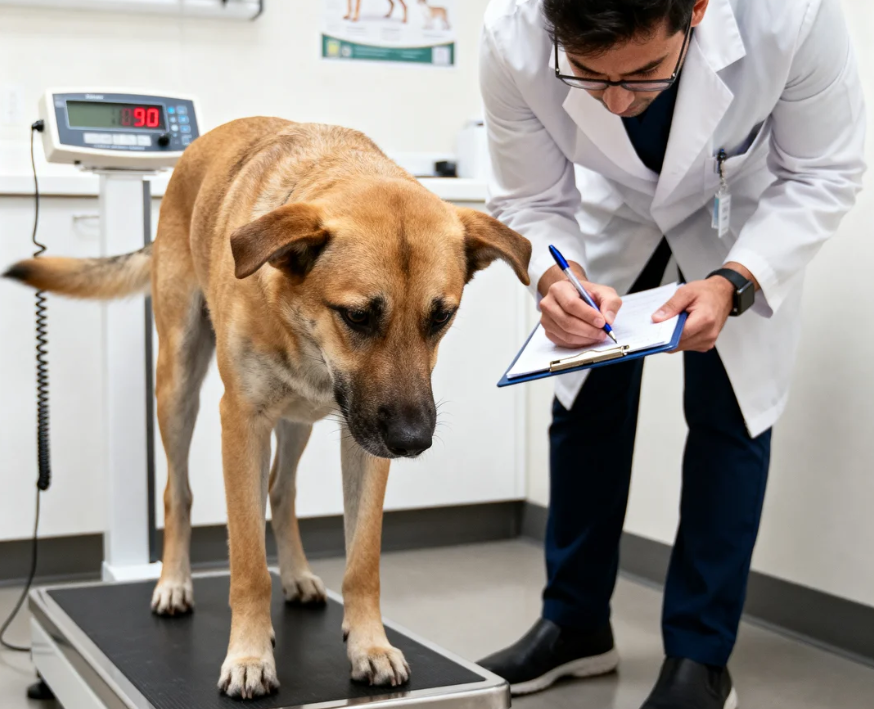Dogs Gastrointestinal Problems: A Complete Guide for Pet Owners
If you’ve ever rushed your pup outside in the middle of the night because of vomiting or diarrhea, you already know how stressful dogs gastrointestinal problems can be. As loving pet parents, we want nothing more than to see our dogs happy, energetic, and free of discomfort. But when their digestive system struggles, it not only worries us—it affects their overall quality of life.
This comprehensive guide will walk you through the causes, symptoms, treatments, and prevention of gastrointestinal issues in dogs. More importantly, it will help you feel empowered to protect your furry family member’s health.

Regular care and attention help keep your dog’s digestive system healthy.
What Are Dogs’ Gastrointestinal Problems?
The gastrointestinal system in dogs is responsible for breaking down food, absorbing nutrients, and eliminating waste. When something disrupts this process, your dog may experience digestive issues ranging from mild tummy upset to serious illness.
Dogs’ gastrointestinal problems can be short-term (acute) or long-lasting (chronic). Recognizing the difference helps you respond appropriately and avoid unnecessary suffering for your pet.
Common Causes of Dogs Gastrointestinal Problems
-
🍗 Dietary Indiscretion
Dogs are curious eaters. From trash to table scraps, many digestive issues start when dogs eat something they shouldn’t. -
🥚 Food Allergies and Intolerances
Some dogs can’t digest certain proteins or grains, leading to ongoing gastrointestinal problems. -
📉 Sudden Diet Changes
Switching foods too quickly can shock a dog’s digestive system, causing diarrhea or vomiting. -
🦠 Infections and Parasites
Viruses, bacteria, or intestinal worms are common sources of dogs gastrointestinal problems that require veterinary care. -
🫀 Chronic Conditions
Diseases such as pancreatitis, inflammatory bowel disease (IBD), or liver disorders often present as digestive issues.
Symptoms of Dogs’ Gastrointestinal Problems
Every dog reacts differently, but here are the most common red flags ⚠️
- 🔹 Vomiting (once or repeatedly)
- 🔹 Diarrhea, sometimes with blood or mucus
- 🔹 Constipation or straining
- 🔹 Abdominal bloating or discomfort
- 🔹 Excessive gas
- 🔹 Refusal to eat or drink
- 🔹 Sudden weight loss
- 🔹 Lethargy or irritability
Pro tip: If you notice more than one of these symptoms lasting over 24 hours, contact your vet immediately.
When Are Dogs Gastrointestinal Problems an Emergency?
Some signs mean your dog needs urgent help❗
- 🔺 Severe bloating (possible bloat/GDV, a life-threatening condition)
- 🔺 Persistent vomiting and diarrhea leading to dehydration
- 🔺 Blood in stool or vomit
- 🔺 Inability to keep food or water down
- 🔺 Weakness or collapse

Veterinary diagnosis is key to treating gastrointestinal issues effectively.
Diagnosing Gastrointestinal Issues in Dogs
Your vet may use several methods to identify the cause:
- 🔹 Bloodwork to check organ function
- 🔹 Stool analysis for parasites or bacteria
- 🔹 X-rays or ultrasound for obstructions
- 🔹 Endoscopy or biopsy in chronic cases
Getting an accurate diagnosis prevents unnecessary treatments and ensures faster relief for your pup.
Treatment for Dogs’ Gastrointestinal Problems
-
🍚 Diet Adjustments
- ▫️ ️Temporary bland diets (boiled chicken and rice)
- ▫️ Prescription food for sensitive stomachs
- ▫️ Slow transitions between diets
-
💊 Medications
- ▫️ Anti-nausea or anti-diarrheal drugs
- ▫️ Probiotics to restore healthy gut bacteria
- ▫️ Dewormers or antibiotics when needed
-
💤 Supportive Care
- ▫️ IV fluids for severe dehydration
- ▫️ Rest and stress reduction
-
🩺 Surgery (Rare Cases)
- ▫️ Foreign objects or obstructions may require surgery to restore normal digestion.
Preventing Dogs Gastrointestinal Problems
Prevention is the best medicine. Follow these steps:
- 🔹 Feed a consistent, high-quality diet
- 🔹 Transition foods gradually
- 🔹 Keep trash and harmful foods out of reach
- 🔹 Use year-round parasite prevention
- 🔹 Provide fresh water daily
- 🔹 Minimize stress with a predictable routine
Supporting Long-Term Digestive Health
Healthy digestion isn’t just about avoiding illness—it’s about giving your dog the best quality of life. Many pet parents in the U.S. are turning to probiotics, digestive supplements, and fiber-rich foods to maintain balance in the gut.
Most importantly, love and attention go a long way. When you notice even small changes in your dog’s behavior or appetite, take them seriously. Dogs can’t tell us when they’re in pain—but they trust us to notice and care.
Final Thoughts: Caring for Your Dog’s Digestive Health
Dogs gastrointestinal problems are common, but they don’t have to define your pup’s life. By learning the signs, seeking veterinary guidance, and making smart choices about diet and lifestyle, you can help your dog thrive.
Our dogs bring us unconditional love—keeping their digestive system healthy is one of the best ways we can return that love.